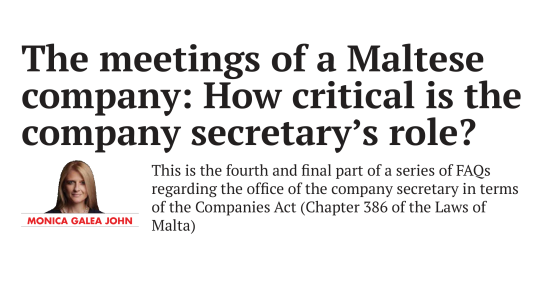
AUTHOR
Thomas Bugeja
Nikol Caruana
READING TIME
4 MINS
A new deal for traders & consumers!
Implementing the Omnibus Directive into Maltese Law
As part of the package for implementing the ‘New Deal for Consumers’ initiative at EU level, the Directive (EU) 2019/2161 on the better enforcement and modernization of EU consumer protection rules– known as the Omnibus Directive – was adopted back in 2020. The Omnibus Directive has amended several existing directives with the intention of modernising and strengthening existing consumers rights, in particular by further regulating online consumer protection and imposing a number of obligations and restrictions on traders and businesses. It also ensures harmonisation by aligning enforcement measures and increasing penalties (in certain cases), in order to ensure legal certainty and equality for consumer redress throughout the EU.
On the 21st of October 2022, the Maltese Government enacted the transposing act, titled the Consumer Affairs Act and other Laws relating to consumer protection (Amendment) Act (Act No. XIII of 2022) – herein referred to as the “Omnibus Act”.
Amending the Consumer Affairs Act (Chapter 378)
The Omnibus Act is structured in three parts, though which it amends several consumer-protection laws that are embodied locally in the Consumer Affairs Act and its underlying subsidiary legislation. The amendments vary from introducing rules concerning search engines, online reviews and marketplaces, regulating digital services relating to personal data, and imposing new obligations on traders in case of price reductions amongst others. A summary of the main amendments is being reproduced below.
- Widening the scope in line with digital innovation
While several existing definitions have been streamlined through the different laws, new definitions including those of ‘product’ and ‘service contract’ have been implemented to incorporate digital products and services offered by traders, digital contracts and digital content. This introduction is in line with the recent implementation of the ‘Digital Content and Digital Services Contracts Regulations’ (S.L. 378.20 enacted last January to transpose another Directive (EU) 2019/770).
The notion of ‘online marketplace’ has also been introduced to regulate distant contracts concluded between traders and consumers thereon. Going forward, consumer protection shall officially extend to transactions in online marketplaces, including the right of consumers to withdraw within 14 days and the right to obtain certain pre-contractual information. On the other hand, traders offering products in online marketplaces must disclose certain information upfront, such as by specifying whether they are offering the product as a trader (or not), or if a price presented to the consumer was personalised as a result of automated decision-making.
Moreover, when searching for different products online, the factors that determine the ranking of the search results are to be made available and considered as ‘material information’. The same applies to the information confirming whether or how the trader ensures that accessible consumer reviews originate from consumers who have actually used or purchased the reviewed product, provided that the omission or vagueness of such information may constitute a ‘misleading practice’.
A significant introduction is that the arrangements through which digital services or content are provided to consumers “freely”, in return for their personal data, will now be subject to consumer law.
- Additional unfair commercial practices online:
The following practices will now be considered as ‘unfair practices’ that are misleading and prohibited:
- providing search results to online search queries without the trader clearly disclosing any paid advertisement or payment for achieving higher ranking of products within said search results.
- reselling events tickets to consumers when the trader acquired them by using automated means to circumvent any purchasing limits or any other rules applicable to the purchase of tickets.
- stating that reviews of a product are submitted by consumers who have actually used or purchased the product, without the trader actually verifying.
- submitting or commissioning another person to submit false consumer reviews or endorsements, or misrepresenting consumer reviews or social endorsements, in order to promote products.
- Increased enforcement measures and penalties in consumers claims
In determining penalties to be imposed for (a) infringements amounting to unfair contract terms, unfair commercial practices and illicit schemes (Part VII and Part VIII of the Consumers Affairs Act) or (ii) infringements of the Consumer Rights regulations, the Civil Court shall now also take into account non-exhaustive and indicative criteria which include among others:
-the nature, gravity, scale and duration of the infringement;
-any action taken by the seller or supplier to mitigate or remedy and any previous infringements by the seller or supplier;
Moreover, in case of a coordinated actions by authorities of different Member States against “widespread infringement” by a trader (i.e affecting consumers within at least 3 member states within the EU) the maximum fines shall be at least 4% of the trader’s annual turnover in the Member State/s concerned, provided that where such information is not available the maximum amount of the fine shall be at least €2 million.
- Price reduction indications
In order to address simulated price reductions that mislead consumers into believing they are making bargains, the law now requires traders to indicate for a determined period, the previous price that was applicable during the 30-day period (or longer) prior to the application of any price reduction.
In case of products which deteriorate or expire quickly, or that have been on the market for less than 30 days, the prior price shall be the one applied before the reduction. The same applies in case the progressive reductions, whereas the prior price shall be the one prior to the first reduction.
To note also that the penalties imposed for infringement of the offences in these regulations have also been slightly increased and now range between €150 – €2,000. Any convictions in this regard shall be published in one or more daily newspapers and on the website of the competent authority.
Authors: Thomas Bugeja and Nikol Caruana.

















